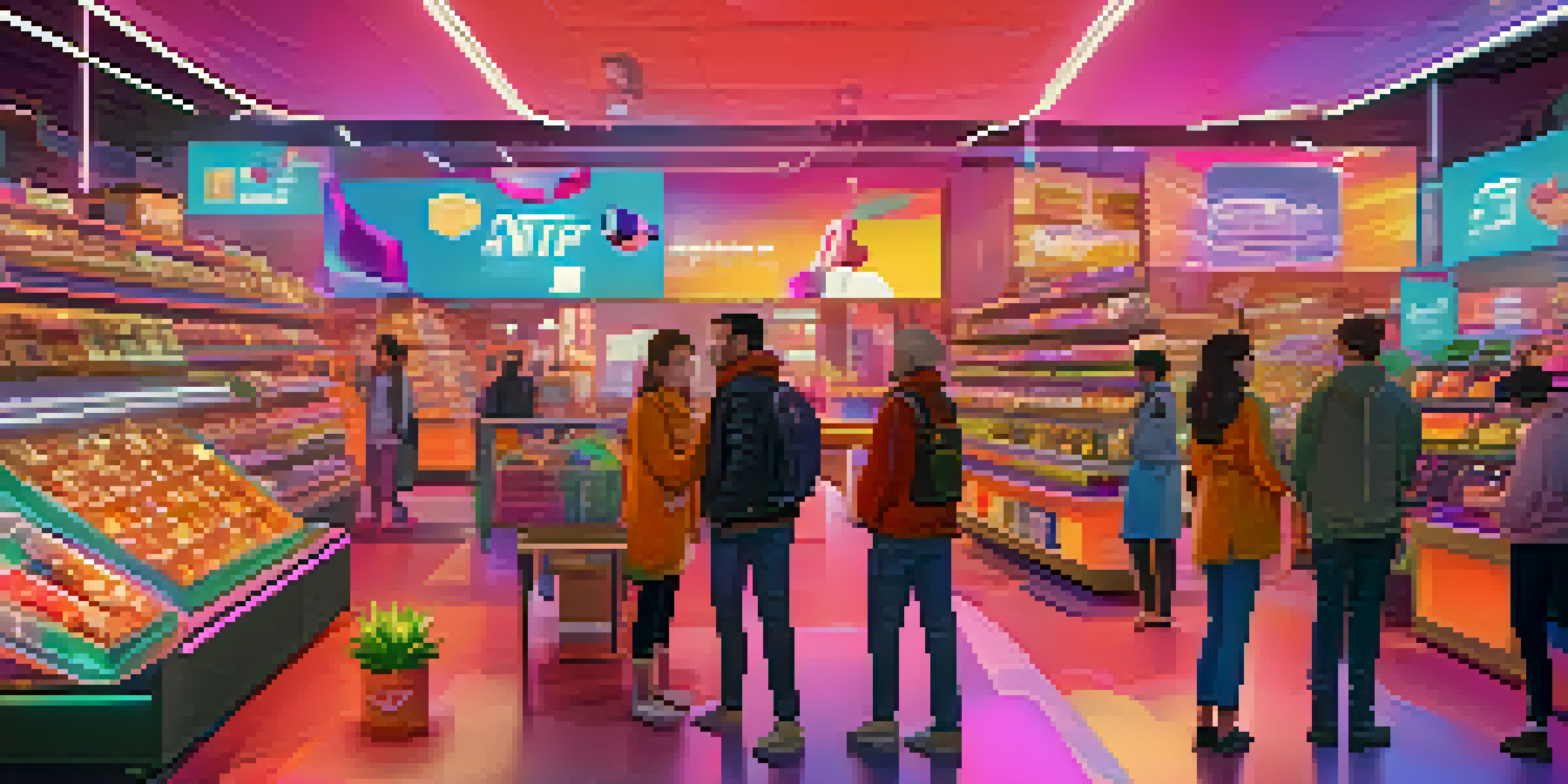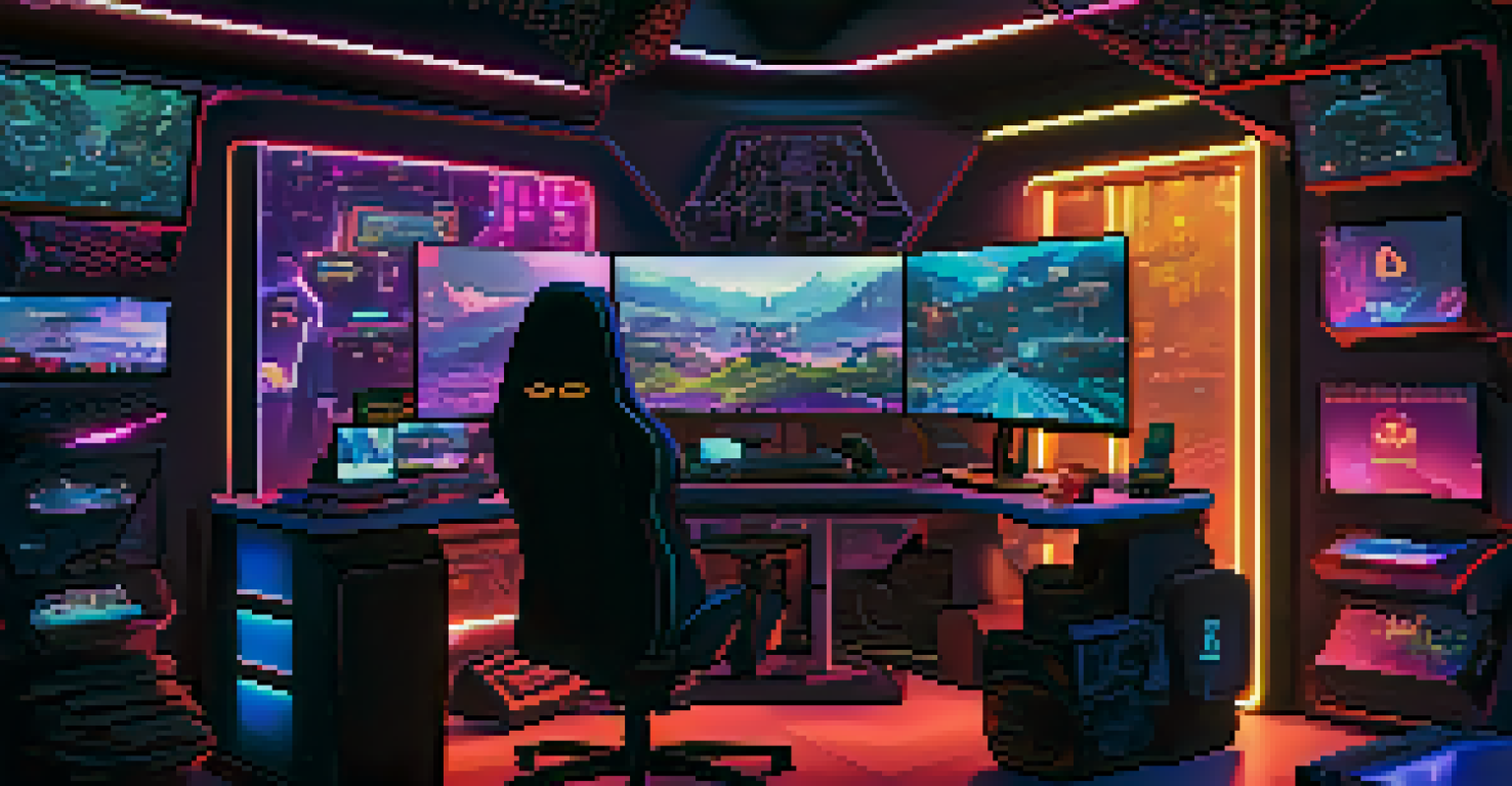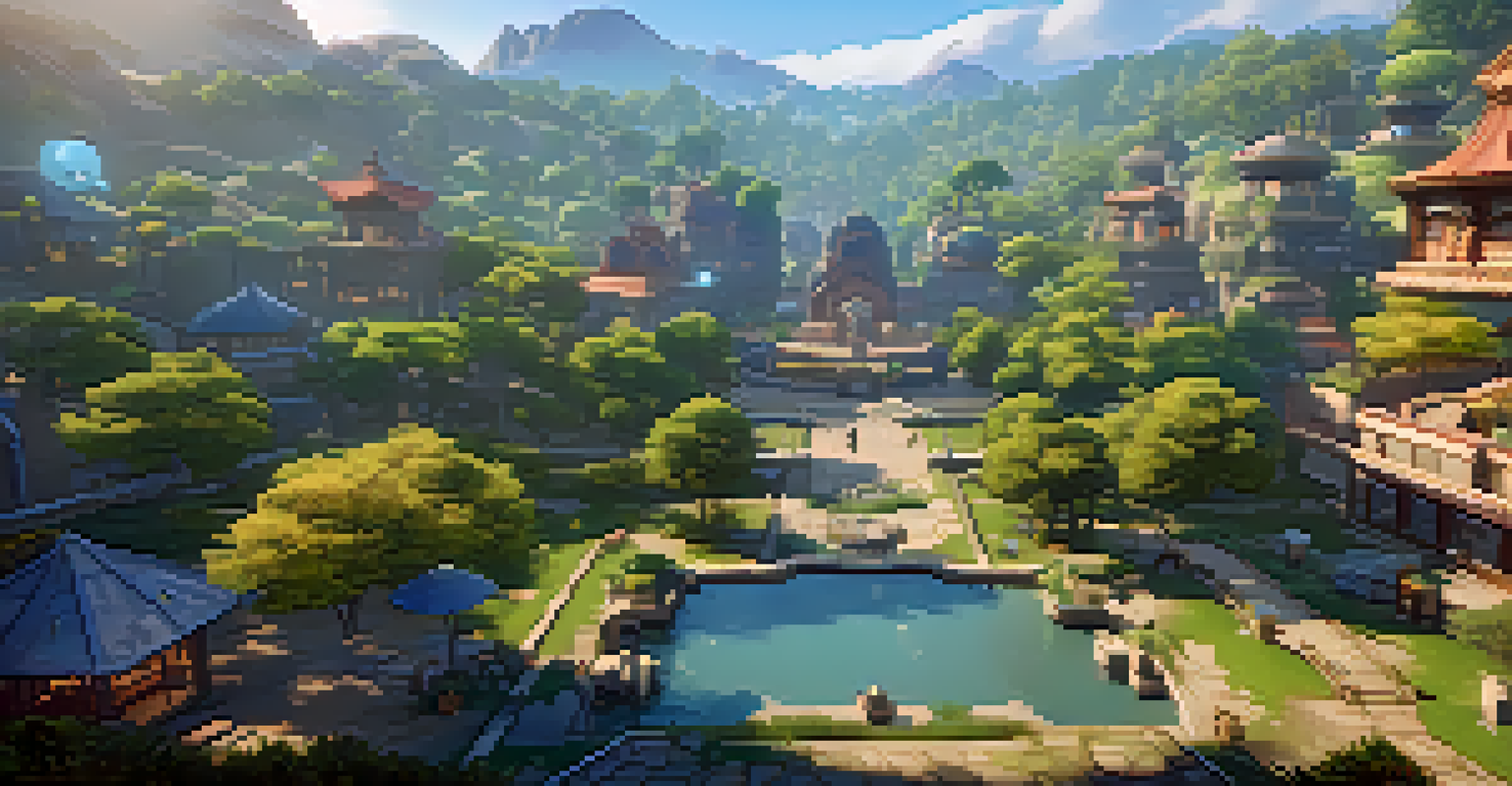NFT Marketplaces: Where Gamers Buy and Sell Virtual Assets

Understanding NFTs and Their Role in Gaming
Non-fungible tokens, or NFTs, are unique digital assets that represent ownership of items, art, or even characters in virtual environments. Unlike traditional cryptocurrencies, which are interchangeable, each NFT has distinct properties that make it one-of-a-kind. In gaming, NFTs can represent anything from in-game skins to rare items, giving players true ownership over their assets.
The future of gaming lies in the ability to truly own your in-game assets, as NFTs allow players to do just that.
This shift towards digital ownership has changed the way gamers engage with their favorite titles. Instead of merely renting assets through licenses, players can buy, sell, or trade their NFTs freely on various marketplaces. This new dynamic creates a sense of investment and value that was previously absent in many games.
As more developers integrate NFTs into their games, the landscape is evolving rapidly. Players are not just consumers; they're participants in a digital economy, crafting their gaming experiences while potentially earning real-world value.
Popular NFT Marketplaces for Gamers
Several NFT marketplaces cater specifically to gamers, enhancing accessibility and exposure for digital assets. Platforms like OpenSea, Rarible, and Immutable X allow users to explore a wide range of NFTs across various games. Each marketplace offers unique features, from user-friendly interfaces to built-in wallets, making it easier for players to dive into this new digital economy.

Additionally, some game developers have launched their own marketplaces, ensuring a seamless process for buying and selling in-game assets. For example, Axie Infinity has its dedicated marketplace for trading Axies, while Decentraland allows users to buy and sell virtual real estate. These specialized platforms create communities where players can connect and trade.
NFTs Enable True Digital Ownership
Non-fungible tokens (NFTs) provide gamers with genuine ownership of their in-game assets, allowing them to buy, sell, and trade freely.
As the NFT space continues to grow, new marketplaces will likely emerge, each with its unique offerings and community focus. Staying informed about these platforms can help gamers navigate their options and make the most of their digital assets.
How to Buy and Sell NFTs in Gaming
Buying and selling NFTs is increasingly straightforward, even for those new to the concept. First, gamers need to set up a digital wallet compatible with the marketplace they wish to use. This wallet stores cryptocurrencies and NFTs, acting as a gateway to participate in the NFT ecosystem.
NFTs are transforming the gaming landscape, enabling players to become active participants in a digital economy rather than just consumers.
Once the wallet is ready, players can purchase cryptocurrencies like Ethereum, which is commonly used in many NFT transactions. After funding the wallet, users can explore their chosen marketplace, browse listings, and make purchases with just a few clicks, similar to online shopping.
Selling NFTs is just as simple. Players can list their assets on the marketplace of their choice, set a price, and wait for potential buyers to show interest. This ease of transaction empowers gamers, allowing them to capitalize on their investments and engage actively in the gaming economy.
The Benefits of NFTs for Gamers
NFTs offer several advantages for gamers, most notably true ownership of digital assets. Unlike traditional gaming models, where items are often tied to a player's account and cannot be transferred, NFTs allow gamers to own their assets outright. This empowerment can lead to increased engagement and a deeper connection to the game.
Additionally, NFTs can enhance the gaming experience by introducing scarcity and rarity. When players know that only a limited number of certain items exist, it can elevate the game's appeal and create a thriving marketplace. This sense of exclusivity can turn simple in-game items into coveted possessions.
NFT Marketplaces Enhance Trading
Specialized NFT marketplaces like OpenSea and Axie Infinity facilitate easy access and trading of digital assets for gamers.
Moreover, the potential for profit makes NFTs an attractive option for gamers. As the popularity of certain games and collectibles grows, so too can the value of the NFTs associated with them, providing opportunities for players to earn real income from their gaming activities.
Challenges and Risks of NFT Gaming
While the world of NFT gaming is exciting, it also comes with its own set of challenges and risks. One major concern is market volatility; just like traditional investments, the value of NFTs can fluctuate dramatically. This unpredictability can lead to significant losses for players who invest heavily in certain assets.
Additionally, the environmental impact of NFTs has sparked debate. The energy consumption associated with blockchain transactions can be substantial, raising concerns about sustainability. Many in the gaming community are advocating for more eco-friendly solutions to mitigate this issue.
Lastly, the potential for scams and fraud in the NFT space is another risk worth noting. As with any emerging market, players should exercise caution, conduct thorough research, and ensure they are purchasing from reputable sources to avoid falling victim to scams.
The Future of NFTs in Gaming
The future of NFTs in gaming looks promising, with continued innovation and integration on the horizon. As more developers recognize the potential of NFTs, we can expect to see an influx of games that utilize these digital assets creatively. This could lead to new game mechanics and experiences that blur the lines between gaming and investment.
Moreover, as technology evolves, we may witness advancements that address current challenges, such as environmental concerns and market volatility. Developers and platforms may implement more energy-efficient blockchain solutions, making NFT gaming more sustainable and appealing to a broader audience.
NFT Gaming Faces Challenges Ahead
Despite their potential, NFTs in gaming encounter risks such as market volatility, environmental concerns, and the threat of scams.
Ultimately, the success of NFTs in gaming will depend on community engagement and the value they bring to players. As gamers continue to explore this digital frontier, the possibilities are endless, paving the way for a vibrant future in the gaming world.
Getting Started with NFTs in Gaming
For gamers eager to dive into the world of NFTs, getting started can be a thrilling adventure. First, take the time to research different games that utilize NFTs to find one that resonates with your interests. Whether you're into competitive play, social experiences, or creative building, there are plenty of options available.
Next, familiarize yourself with the basics of blockchain technology and how NFTs function. Understanding the underlying principles will empower you to make informed decisions about your purchases and investments. There are numerous online resources, including articles and videos, that break down these concepts in an approachable way.

Finally, don't hesitate to join communities of like-minded gamers. Engaging with others who share your passion can provide support, insights, and valuable information as you navigate the exciting world of NFT gaming. With a little research and curiosity, you can confidently embark on your NFT journey.